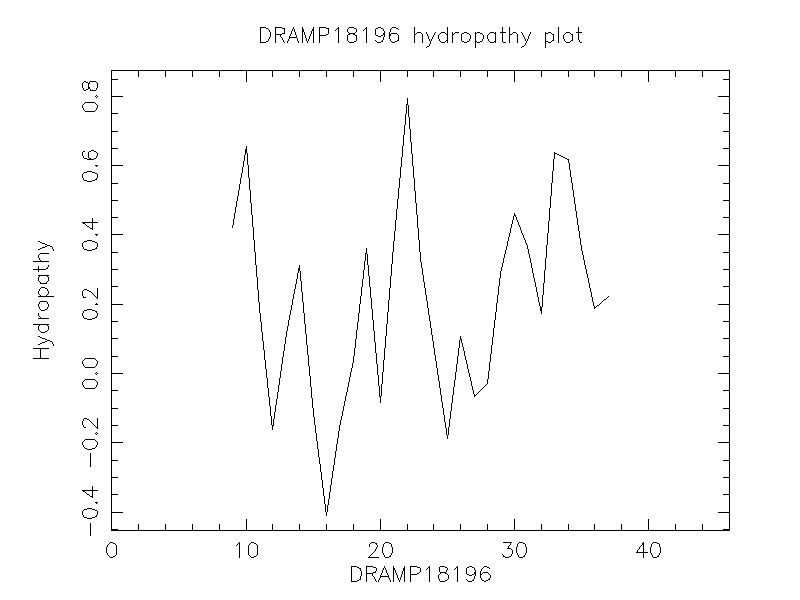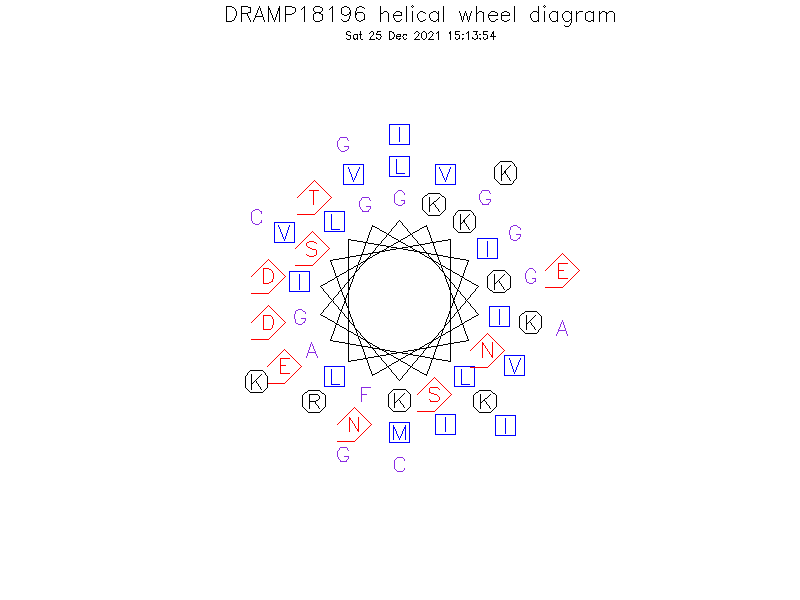General Information
-
DRAMP ID
- DRAMP18196
-
Peptide Name
- Esculentin-1A
-
Source
- Pelophylax esculentus (Edible frog) (Rana esculenta)
-
Family
- Belongs to the frog skin active peptide (FSAP) family
-
Gene
- Not found
-
Sequence
- GIFSKLAGKKIKNLLISGLKNVGKEVGMDVVRTGIDIAGCKIKGEC
-
Sequence Length
- 46
-
UniProt Entry
- P40843
-
Protein Existence
Activity Information
-
Biological Activity
- Antimicrobial, Antibacterial, Antibiotic
-
Target Organism
- No MICs found in DRAMP database
-
Hemolytic Activity
-
- [Swiss_Prot Entry P40843]has hemolytic activity
-
Cytotoxicity
-
- Not included yet
-
Binding Target
- Not found
Structure Information
-
Linear/Cyclic
- Not included yet
-
N-terminal Modification
- Not included yet
-
C-terminal Modification
- Not included yet
-
Nonterminal Modifications and Unusual Amino Acids
- Not included yet
-
Stereochemistry
- Not included yet
-
Structure
- Not found
-
Structure Description
- Not found
-
Helical Wheel Diagram
-
PDB ID
- 2N6M
-
Predicted Structure
- There is no predicted structure for DRAMP18196.
Physicochemical Information
-
Formula
- C212H371N59O60S3
Absent Amino Acids
- HPQWY
Common Amino Acids
- GK
Mass
- 4802.82
PI
- 9.63
Basic Residues
- 9
Acidic Residues
- 4
Hydrophobic Residues
- 17
Net Charge
- +5
-
Boman Index
- -2864
Hydrophobicity
- 0.22
Aliphatic Index
- 114.35
Half Life
-
- Mammalian:30 hour
- Yeast:>20 hour
- E.coli:>10 hour
Extinction Coefficient Cystines
- 125
Absorbance 280nm
- 2.78
Polar Residues
- 15
DRAMP18196

Comments Information
Function
- Antibacterial activity against representative Gram-negative and Gram-positive bacterial species, and hemolytic activity.
Literature Information
- ·Literature 1
-
Title
- Antimicrobial peptides from skin secretions of Rana esculenta.Molecular cloning of cDNAs encoding esculentin and brevinins andisolation of new active peptides.
-
Pubmed ID
- 8163497
-
Reference
- J. Biol. Chem. 269:11956-11961(1994)
-
Author
- Simmaco M., Mignogna G., Barra D., Bossa F.

